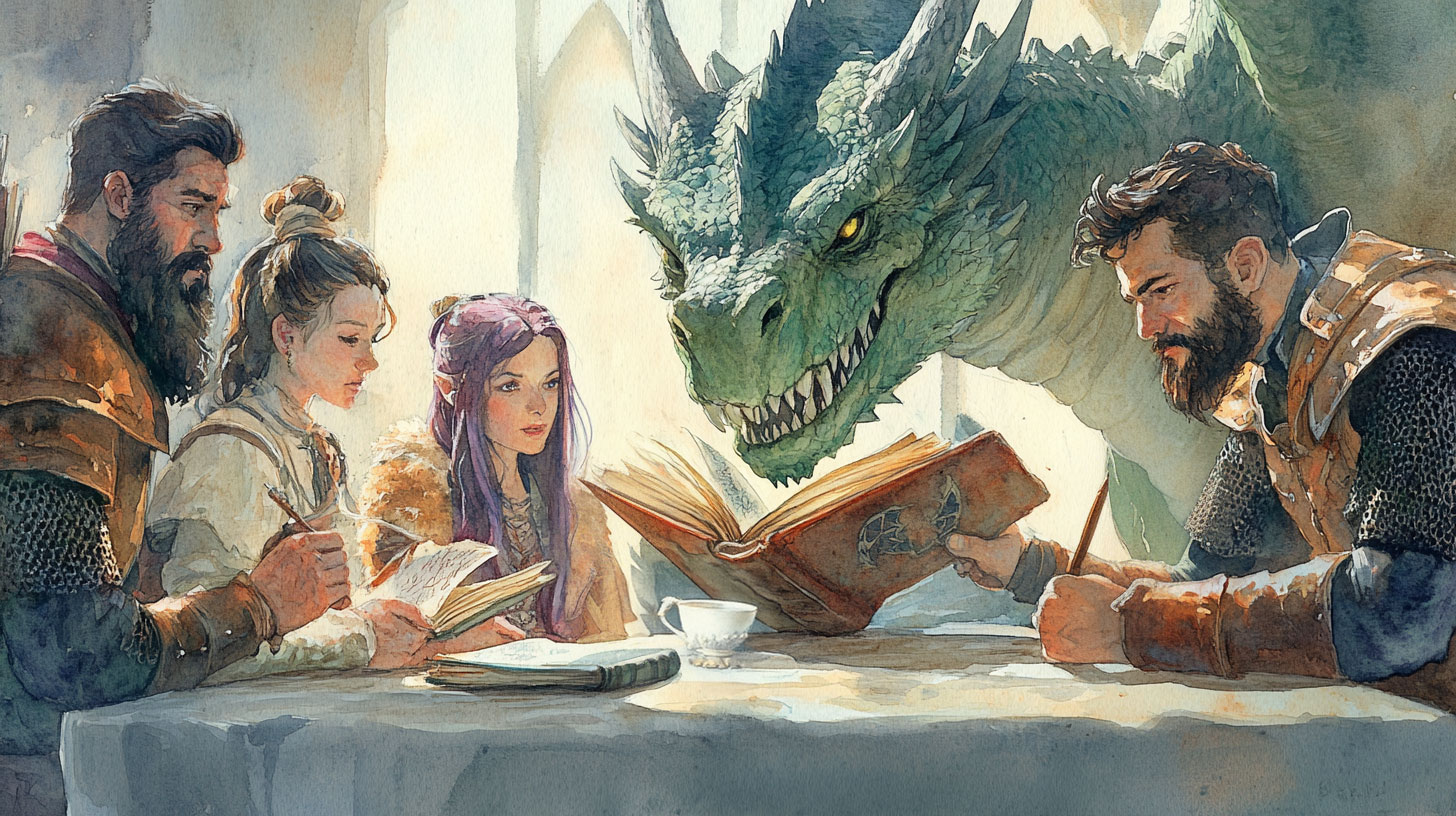Journaling games vary widely in theme and structure, but at their core, they offer a role-playing experience distinct from traditional tabletop RPGs like Dungeons & Dragons. While both involve storytelling and character development, journaling games differ significantly from group-based, Dungeon Master-led adventures. Because of these differences, D&D rules are not commonly used in journaling games. However, that doesn’t mean they couldn’t be incorporated; rather, the format of journaling games does not necessitate traditional RPG mechanics.
Here are some key ways in which journaling games differ from Dungeons & Dragons and why D&D rules and procedures are not typically used in them:
1. Journaling Games Are Played Solo
Unlike D&D, which is designed for a group of players with a Dungeon Master guiding the adventure, journaling games are typically played alone. While there are ways to play D&D solo, journaling games do not require the structured mechanics of ability checks, combat rounds, or skill tests. Since there is no DM to interpret dice rolls or provide additional context when something unexpected happens, a complex rule system like D&D’s is unnecessary.
2. Journaling Games Are More Reactive Than Proactive
D&D rules work best when players take proactive actions—saying things like, “I jump over the chasm” or “I tell the bartender we won’t be paying for the rooms.” These statements involve rolling dice to determine the outcome, with the DM interpreting the results. In contrast, journaling games often present prompts based on random markers (such as dice rolls or card draws), telling the player what has already happened and asking them to reflect on or react to the event. Instead of choosing to storm the castle and rolling to see if they succeed, a journaling game might tell the player that their character attempted to storm the castle and ask them to write about how it went, how they felt, and what it meant for the world around them.
3. Journaling Games Lack Traditional Character Sheets
One of the central mechanics of D&D is the character sheet, which defines a character’s stats, abilities, and progression. These stats serve as the foundation for rolling checks, engaging in combat, and determining success or failure. Journaling games, however, do not typically include detailed character sheets. While players may have a character biography or some basic information about their character, there are usually no stats or experience points to determine success in specific actions. Without these mechanics, there is no need for D&D’s rule-heavy system.
Can D&D Rules Be Used in a Journaling Game?
Despite these differences, it is possible to incorporate D&D mechanics into a journaling game. Some hybrid experiences have experimented with assigning character stats, rolling for events, and using modified versions of skill checks to influence journal entries. This could add a structured element to journaling games for those who enjoy the mechanics of traditional RPGs while still embracing the introspective nature of solo storytelling.
In conclusion, while journaling games and Dungeons & Dragons share similarities in role-playing and storytelling, they are structured differently enough that D&D rules are not commonly used. However, creative players can blend elements of both to create unique, hybrid experiences that offer the best of both worlds.


Responses (0)